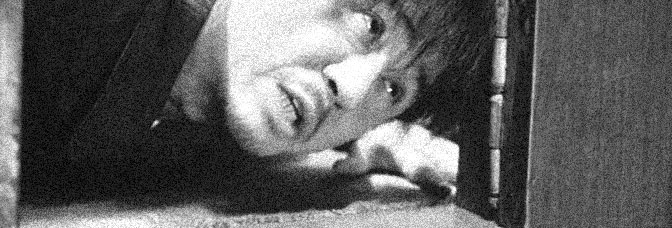Thanks to Joint Security Area, I was leery of Oldboy going in. While Park Chan-wook has a large fan base, all JSA did was convince me they weren’t seeing the same movie. Finally, after Oldboy, I can understand why he has the fan base… and it’s unfortunate.
Park had his big revelation ending to Joint Security Area and it felt inorganic. Oldboy‘s big end reveal sequence does feel organic, but it also feels incredibly manipulative. It’s sensationalist–evidenced by the intentional lack of resolution to it. It’s an either way ending–maybe from the source manga–but also maybe to appeal to that now popular sentiment of an ending like Oldboy‘s being cool because it’s ambiguous. What Park does in Oldboy is deceive the viewer for the film’s entirety, then pat himself on the back at the end. It’s a safe, immature ending. There’s an analog to a John Sayles film–I can’t reveal which one because it’d give away Oldboy‘s conclusion–but the two are world’s apart. Sayles works through the sensationalism to the human reality of the situation and tries to reconcile. Park just tries to be cool. Guess who’s a more popular filmmaker (and guess who’s a better one)?
But what’s strange about Oldboy–I checked with a friend, who said it was in the three to four range… and it was until the Seven slash Unbreakable ending–is Park’s great direction. With the early exception of a very standard umbrellas from above (another Seven reference), Park’s Panavision direction is fantastic. There’s a long fight scene, panning across it, and it’s a wonderful use of the frame. Park’s panning, actually–there’s a lot of it–is maybe the best panning I’ve seen. He does it for tone, he does it for effect, he does it for action. Even at the end, as the film’s crumbling, he’s got this great digital composite shot. It’s a little too clean looking; still excellent.
The music–by Jo Yeong-wook–is an essential component. More than any of the other technical aspects (the editing is good, but the cinematography, while competent, lacks any personality), the music makes Oldboy. The music has a lot to do–combined, it and Choi Min-sik’s voiceover narration (present tense, which is a little odd, but given the film’s manga roots, not surprising), make up the majority of Oldboy‘s exposition. It works–a little awkwardly, a little painfully hip at times–but it does work.
So, in reality, not many of the film’s actors have a lot of acting to do. Choi gives a fantastic physical performance, but it’s physical to the point of a Buster Keaton performance… without the close-ups. He gets to define his character through the voiceovers. Kang Hye-jeong’s character’s allegiances and motivations are in constant question, so she never gets to flesh out her role. She does a fine enough job, but Park doesn’t really ask her to do anything except be sweet and vulnerable. The real stellar performance is from Yu Ji-tae, who gets to run off with the film after a certain point. Park visibly realizes Choi’s character is ruined–in terms of giving Choi anything interesting to do–after the big reveal, whereas Yu gets to become the best Bond villain ever.
While the film does appeal in its shock value trendiness to American audiences, Oldboy is definitely a reaction to the Korean film. Much of it feels like an intentional comment on the Korean romantic drama, only distorted and cynically packaged. As for the originality… again, I’m afraid a glib comparison would reveal the ending… it’s impossible, for me, right now, to know what Park took from the manga and left.
Oldboy‘s very much about watching Choi’s quest. But his quest is very much a Grimm Brothers fairy tale, in the original sense, and it’s a fairy tale without a reward at the end, which always seems to be the thing filmmakers don’t want to acknowledge the form, by definition, requires.
 ★½
★½
CREDITS
Directed by Park Chan-wook; written by Hwang Jo-yun, Lim Joon-hyung and Park, based on a story by Tsuchiya Garon and the manga by Minegishi Nobuaki; director of photography, Jeong Jgeong-hun; edited by Kim Sang-beom; music by Jo Yeong-wook; production designer, Ryu Seong-hie; produced by Kim Dong-ju; released by Show East.
Starring Choi Min-sik (Oh Dae-su), Yu Ji-tae (Lee Woo-jin), Kang Hye-jeong (Mi-do), Ji Dae-han (No Joo-hwan), Oh Dal-su (Park Cheol-woong), Kim Byeong-ok (Mr. Han), Lee Seung-Shin (Yoo Hyung-ja) and Yun Jin-seo (Lee Soo-ah).
RELATED

Leave a Reply